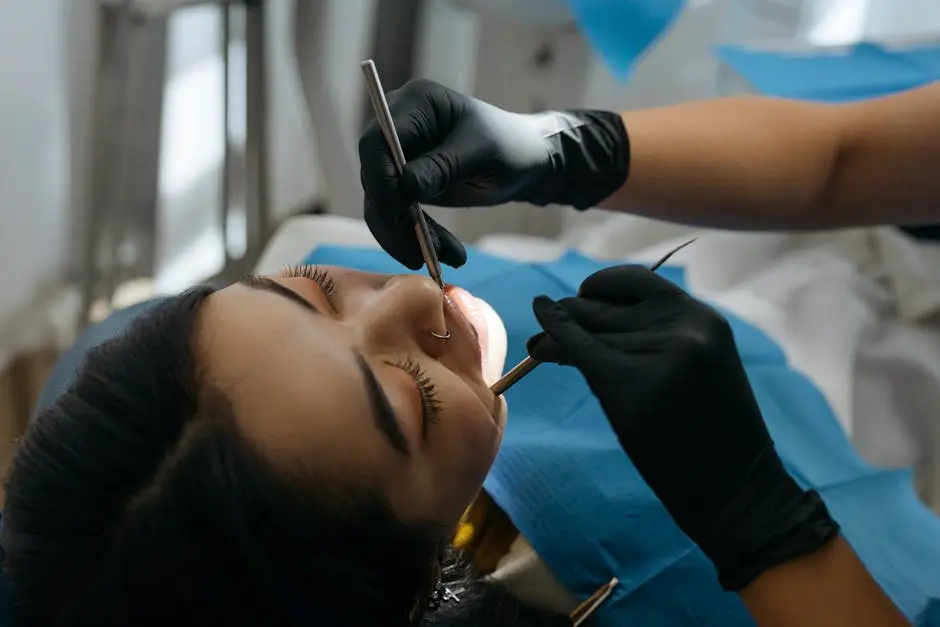Dental emergencies can be both frightening and painful, but knowing how to respond can make all the difference. From a sudden toothache to an injury that leaves you needing immediate care, understanding what constitutes a dental emergency and how a professional can help is vital. In this blog, we will explore eight common dental emergencies and how a dentist in Cypress, TX can provide you with the necessary treatment and peace of mind.
1. Understanding Dental Emergencies
Dental emergencies encompass a range of situations that require prompt attention from a professional. Recognizing when a dental issue escalates to an emergency is crucial. For instance, while a minor toothache might seem manageable, it can be a symptom of a more severe problem like an infection or abscess. By understanding the signs of dental emergencies, you’re equipped to seek help when it matters most. Awareness is your first step towards safeguarding your dental health.
Additionally, it’s important to have a plan in place when a dental emergency strikes. Knowing where to find an emergency dentist in Cypress, TX, and having their contact information ready can significantly reduce the stress of the situation. Preparation not only gives you peace of mind but can also ensure that you receive the necessary treatment quickly. Never underestimate the power of being prepared in a dental crisis!
2. Dealing with a Severe Toothache
A severe toothache can often feel like the worst kind of pain. It tends to disrupt your day-to-day activities, making it hard to concentrate on anything other than the discomfort. Often, this pain is an indicator of underlying issues such as tooth decay, gum disease, or even a cracked tooth. If you’re dealing with a toothache that won’t subside, it’s crucial to reach out to an emergency dentist in Cypress, TX. They can help diagnose the root cause of your pain and provide effective treatment solutions.
In the meantime, there are some steps you can take to manage the discomfort while you await your appointment. Over-the-counter pain relievers can provide temporary relief, and applying a cold pack to the outside of your cheek can help reduce swelling. However, these are just stopgap measures—only a dental professional can address the underlying issue causing your severe toothache.
3. Tooth Displacement or Avulsion
Tooth displacement or avulsion occurs when a tooth is knocked out of its socket. This can happen during sports accidents or falls, and it can be a frightening experience. The immediate steps you take following this type of injury are essential. If you can locate the tooth, handle it by the crown and avoid touching the root, as this protects the tooth’s ligaments.
Rinsing the tooth gently with water without scrubbing is the next step, and if possible, trying to place the tooth back in its socket until you can see a dentist is ideal. If re-implantation isn’t feasible, store the tooth in a glass of milk or saliva, as it helps maintain its vitality. Quickly making your way to an emergency dentist in Cypress, TX, can have a huge impact on the outcome. Time is of the essence when it comes to saving an avulsed tooth.
4. Cracked or Broken Teeth
Cracked or broken teeth can result from various causes, including biting down on hard objects, sports injuries, or even severe tooth decay. The damage can range from minor cracks that may not hurt to significant breaks that lead to intense pain and increased sensitivity. It’s important to see a dentist promptly if you suspect a tooth is cracked or broken. Failure to address this issue can lead to more severe complications, such as infections or further damage to the tooth structure.
In the interim, you can manage the pain using over-the-counter pain relief medications and avoid eating anything that can put further pressure on the damaged tooth. Applying a cold compress to the area of the cheek that corresponds to the affected tooth may also alleviate some discomfort. Remember that while these steps can provide temporary relief, only a qualified dentist can properly assess the extent of the damage and determine the appropriate treatment needed to restore your teeth.
5. Lost Dental Filling or Crown
Losing a dental filling or crown can leave you feeling vulnerable, especially if it exposes sensitive tooth structure. This situation is more than just uncomfortable; it can potentially lead to infection or further decay if left untreated. If your dental crown or filling has come loose, it’s important to contact an emergency dentist in Cypress, TX, to discuss your best course of action. They will guide you through the next steps and ensure you’re back to can eat and smile comfortably.
Until you can get to the dentist, avoid sticky and hard foods that could exacerbate the issue. If there’s sensitivity, consider covering the exposed area with temporary dental cement available over-the-counter. However, remember that this is just a temporary solution. A prompt appointment with your dentist will ensure that the issue is addressed properly and prevent future complications.
6. Soft Tissue Injuries
Soft tissue injuries include damage to the gums, lips, or the inside of the cheeks, often resulting from trauma like bites, falls, or sports injuries. Such injuries can be distressing and might lead to excessive bleeding or swelling. If you experience a soft tissue injury, rinsing your mouth with warm salt water can provide temporary relief and help clean the area. Applying pressure with a clean cloth can help stop any bleeding.
Despite these at-home care steps, seeing a dentist is crucial to ensure that the injury is properly assessed. They may need to suture the wounds or provide additional treatment to prevent infection. Moreover, timely intervention can also help alleviate pain and expedite healing. Your emergency dentist in Cypress, TX, is well-equipped to manage such situations, ensuring your gums, lips, or cheeks heal properly.
7. Dental Abscesses
A dental abscess is a painful condition that indicates an infection at the root of a tooth or between the tooth and gum. Symptoms may include swelling, redness, fever, or a persistent throbbing pain. If you suspect you have a dental abscess, seek immediate care. Quoting the old saying, ‘an ounce of prevention is worth a pound of cure,’ addressing this condition promptly not only alleviates the pain but also prevents the infection from spreading.
When you visit your dentist, they will likely drain the abscess and may prescribe antibiotics to control the infection. In some cases, further treatment such as a root canal may be necessary to eliminate the issue altogether. Remember, timely intervention is key in avoiding potential complications related to dental abscesses. Your dentist in Cypress, TX, will ensure that your oral health is back on track before long.
8. Orthodontic Emergencies
Orthodontic emergencies can occur when wires break, brackets come loose, or if there’s an injury to the mouth while wearing braces. These situations can not only be uncomfortable but can also disrupt treatment progress if not addressed promptly. Not every issue necessitates a trip to the dentist. For instance, a loose wire that has not caused pain might be something you can address at home by gently pushing it back into place with a cotton swab.
However, if the discomfort escalates or if you’re unsure, it’s best to contact your orthodontist or an emergency dentist in Cypress, TX. They can provide guidance on the next steps to take and schedule a visit if needed. Staying on top of orthodontic emergencies can help ensure that your treatment remains on track and that your smile remains beautiful.















